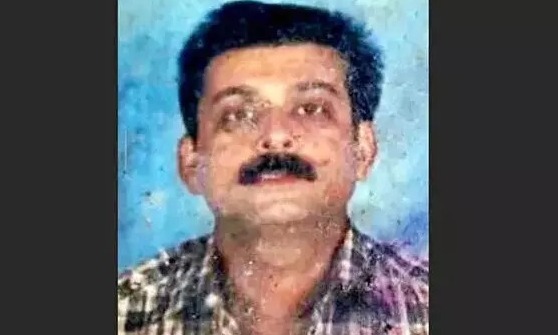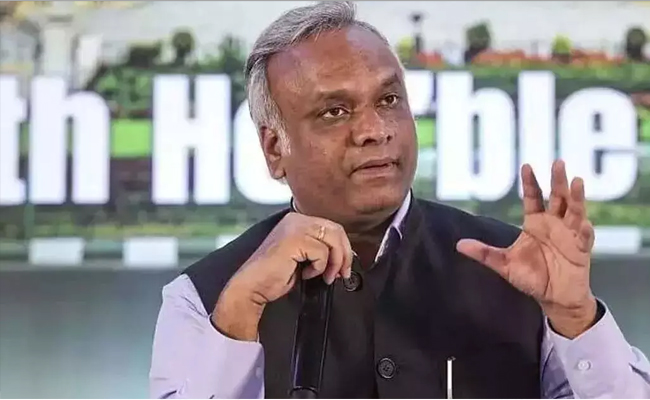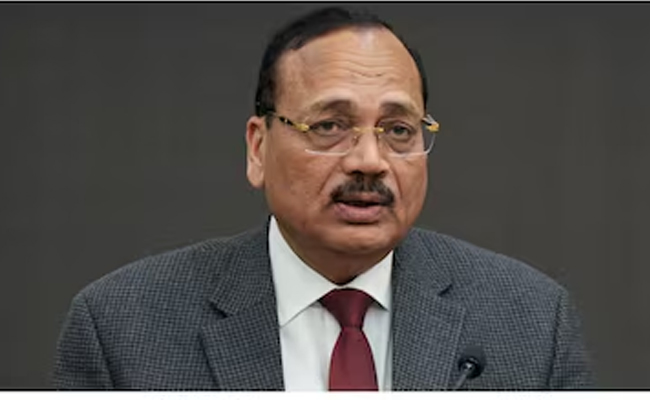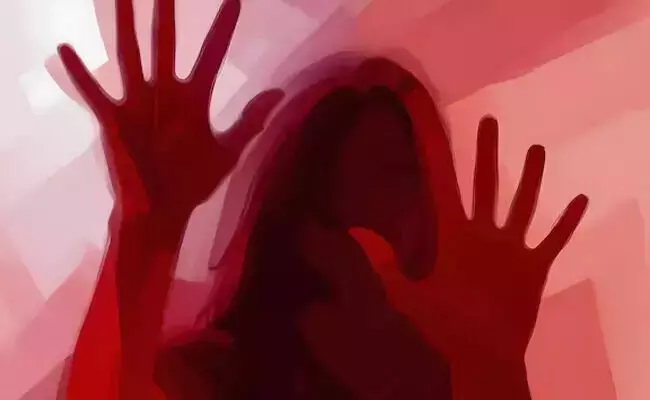The hearing into RTI activist Vinayaka Baliga murder case has reached a decisive stage. Identifying of the butcher knife used in the murder, by the shop keeper who had sold it to the accused killers has made the case stronger. There are a total of 7 accused in the murder case, including NaMo brigade founder Naresh Shenoy who is the main accused. As the accused were very influential, major witnesses had given statements in their favour which had made the case weaker. The shop keeper who had sold the murder weapon had turned a hostile witness too. But S Balan, the special prosecutor has succeeded in bringing out the truth from these hostile witnesses by cross-examination in the court.
Shailesh, the 6th accused in the case, had bought the butcher knife from Bastikar Hardware in Kulur with an intention to murder Vinayaka Baliga. Police had included Devadas Shenoy, owner of the shop who had sold the murder weapon, as a witness in the case. “Accused Shailesh had purchased the knife at our shop. The knife confiscated by the police from the accused and the knife sold by me are one and the same”, Shenoy had stated during police enquiry. The statement was included in the charge sheet by the police and Devadas Shenoy was cited as the witness.
But Devadas Shenoy turned hostile in the court and denied selling the murder weapon to the accused. “I only sell building materials. The knife confiscated from the police is not from my shop. I haven’t seen the accused Shailesh [earlier]”, he had stated. As the case wouldn’t have stood scrutiny if the murder weapon was declared fake, the Special Public Prosecutor had requested permission with the court for a cross examination. After being permitted, the prosecutor conducted a long cross examination on April 24 which has been recorded in 8 pages.
In the crucial stage of the cross examination, witness Devdas Shenoy agreed that the police found 10-15 similar knifes in his shops while they paid him a visit during initial enquiry. He told the prosecutor that even though he didn’t know where these knives were supplied from, the price on their handles were written by his assistants in the shop, as directed by him and the price of the murder weapon confiscated by the police in 2016 was 200 rupees. The public prosecutor then abruptly opened the sealed cover of the murder weapon before the witness, showed him the price written on its handle as ‘Rs 200’ and asked him the estimated price of the weapon in the present day. Devadas Shenoy speculated it to be 240 rupees in the current market rate and stated that he had stopped selling such butcher knives from the previous year as he didn’t want to be a subject to future police enquiries. He agreed that the writing of the price in the handle of the murder weapon was done under his instruction at his shop, even though he didn’t exactly remember which of his assistants had done that. The court marked the statement as the witness had mentioned about the murder weapon and more importantly, had identified it.
RTI activist Vinayaka Baliga had been hacked to death on March 21, 2016 in Kodialbail of Managluru. DYFI and like-minded groups in the city had taken to the streets to protest against the murder, accusing that Vinayaka Baliga had been killed for bringing out the financial irregularities of the NaMo Brigade founder Naresh Shenoy. Police, who investigated the case, had arrested Naresh Shenoy and 6 other accused, and had filed a charge sheet in the court. When Naresh Shenoy was granted bail, he was welcomed by Chakravarti Sulibele outside the jail, which had created a controversy.
Amidst all the developments, S Balan was appointed as the government special prosecutor in the case. Devadas Shenoy, who had earlier given a written statement to the police that the murder weapon used to kill Vinayaka Baliga was purchased by the accused from his shop, had turned hostile in the court. “My shop doesn’t sell any knives. The knives confiscated by the police are not from my shop”, he had stated which helped the accused in the case. So Special Prosecutor S Balan had subjected the hostile witness to a cross examination, succeeding to ensure the authenticity of the murder weapon through the witness himself. As the process of identification of the murder weapon by the witness has been completed, Vinayaka Baliga murder case has reached a decisive end now.
Let the Truth be known. If you read VB and like VB, please be a VB Supporter and Help us deliver the Truth to one and all.
Bengaluru: Rural Development and Panchayat Raj Minister Priyank Kharge has alleged involvement of the Rashtriya Swayamsevak Sangh (RSS) in a money transfer network at global level.
Posting his allegation on his personal ‘X’ account on Saturday morning, Kharge said that he was referring to an issue that had not been dealt with decisively by Indian media houses.
“Here is a crucial story that the Indian media will never touch,” the minister has said, and clarified, “This so-called “body of individuals” has built a global network of over 2,500 affiliated organisations. Through these fronts, the RSS collects “guru dakshina” to fuel its divisive agenda. (sic)”
Kharge has further alleged, “The world’s largest NGO is running amok, laundering money and evading accountability.”
The minister added, “Here is a map of their organisational architecture of their “Vichar Parivaar.” https://rssproject.caravanmagazine.in / @thecaravanindia”





